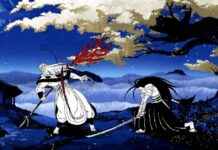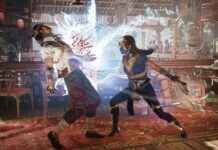Loom is a game that has been somewhat overlooked in the LucasArts library, which is known for its classic titles such as Monkey Island and Grim Fandango. However, there is a growing appreciation for Loom among game critics and enthusiasts. The game, created by Brian Moriarty, offers a unique and beautiful experience that has stood the test of time, even after nearly 35 years since its release.
Moriarty’s background in text-based games, such as Wishbringer, helped shape Loom into a streamlined and inviting graphical adventure. The game can be completed in just a few hours without overly challenging puzzles, but it excels in creating a captivating atmosphere that draws players in. The support from George Lucas, who valued experimentation and engaging storytelling, also played a crucial role in the development of Loom.
The narrative of Loom is set in a fantasy world divided into guilds based on different industries, adding a unique and quirky element to the story. The main character, Bobbin Threadbare, embarks on a fable-like journey to save the universe from disaster, delving into themes of fate, death, and transcendence. The game’s beautiful visuals, inspired by Swan Lake, and its elegant musical score enhance the storytelling experience.
Unlike many adventure games of its time, Loom focuses on logical puzzles that require players to use musical spells to progress. This approach, along with the game’s playfulness and engaging gameplay, appeals to both adults and children. In today’s gaming landscape, where distinctions between family and adult games are more pronounced, Loom’s timeless appeal and family-friendly design make it a standout title worth revisiting.
With the resurgence of older games being remastered and reintroduced to new audiences, Loom presents an opportunity to introduce a classic gem to a wider Western audience. The game’s unique design and narrative approach, combined with its historical significance in game development, make it a compelling candidate for a modern revival. Loom’s enduring charm and thoughtful design serve as a reminder of a bygone era of game development that prioritized wonder and creativity.
As we look back on the legacy of Loom and its place in gaming history, we can appreciate the game’s ability to transport players to a fantastical world filled with mystery and magic. Its timeless appeal and engaging gameplay make it a standout title that deserves recognition and a chance to shine once again in today’s gaming landscape.





















